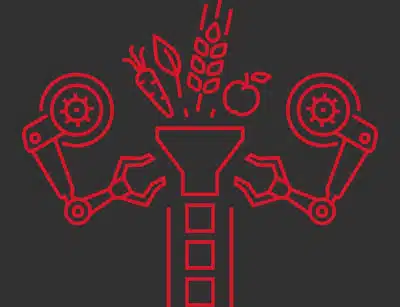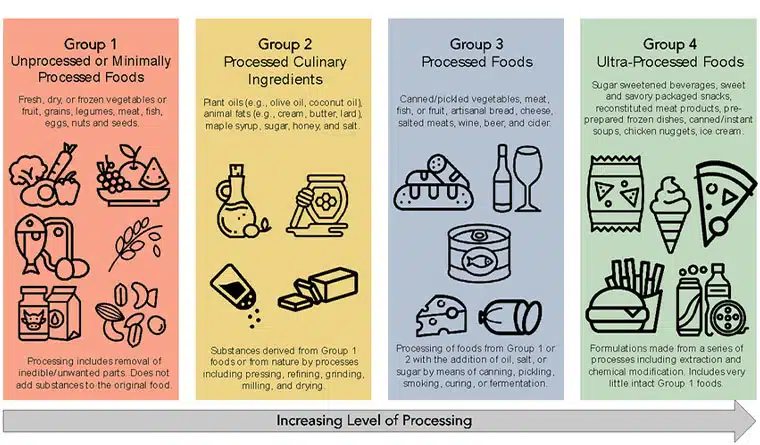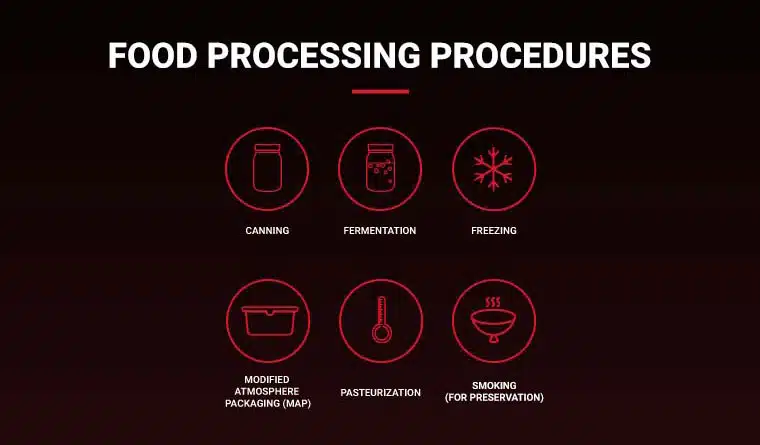
IS PROCESSED FOOD BAD?
Why Not All Processed Food Is Created Equal
Processed food is often described as being high in salt, fat, sugar, calories, and preservatives. But is all processed food bad? Are all processed foods created equal? Could some of the food processing procedures be beneficial for food safety and diversity?
Processed foods have been a popular choice of many families across the world for the past few decades due to how safe, convenient and easy they are to consume.
When we think of processed foods, we often imagine packaged, unhealthy food that is filled with preservatives. But is there all to it? Are all processed foods bad for our health and wellbeing?
What is Processed Food?
To determine whether processed food is bad or not we must first define what processed food is.
So what does processed food mean? According to the U.S Department of Agriculture (USDA), processed food is any food that has been altered from its natural state during its preparation. This process could be freezing, baking, drying, or using preservation methods to increase a product’s shelf life.

Processed Food vs Unprocessed Food
The main difference between processed food and unprocessed food is that one has been altered for different purposes such as preservation and flavor enhancement, while the other has not. Sounds simple, right?
Did you know that most of the food we know and love today is technically “processed”? Think frozen fruit and vegetables, roasted nuts and seeds, bread, milk, and much more.
Is All Processed Food Bad?
The term “processed food” often gets misconstrued, so let’s clear some facts and debunk some of the myths regarding food processing.
There are many types and levels of food processing – ranging from minimal processing procedures such as freezing or packaging (yes, packaged vegetable is potentially “processed food”), and all the way to high levels of processing that include the addition of safe-to-eat additives and preservatives that improve the product’s flavor, texture and more.
Food processing could also be done to add nutrients or inhibit the growth of unwanted microorganisms to extend a product’s shelf life.
With this information in mind, we can see that processed foods are not all created equal, and in some cases, they are in fact a safe and valuable part of our diet.

From Research Gate
Let’s take frozen vegetables as an example; they are most often picked at the peak of ripeness and sealed right after harvesting, which in turn means that they will often be more nutrient-rich than if they were to be sold fresh.
What’s more, food scientists are now able to leverage technology to add more beneficial nutrients to foods than ever before. When used correctly, this remarkable achievement allows us to keep food products fresh for longer while enjoying their health benefits.
Food Processing Procedures
To further clarify the most common misconceptions regarding processed foods, let’s break down some food processing procedures:
Canning – a method used to preserve food from being spoiled by storing it in hermetically sealed containers. This process involves using heat to sterilize and preserve the food for longer.
Fermentation – Food fermentation is a technology used to repurpose the growth and metabolic activity of microorganisms to stabilize or transform food materials. There are many benefits to eating fermented foods, as many are easier to digest and contain probiotic bacteria that could support digestive health.
Freezing – a procedure used to preserve food by lowering the temperature to suppress microorganism growth and protect the product’s nutrients.
Modified Atmosphere Packaging (MAP) – is a food processing method used to extend the shelf life of fresh food products by packaging them with a protective gas mix that replaces the atmospheric mix inside the package.
Pasteurization – a common food processing procedure that uses heat treatments to lower the load of spoilage bacteria and extend a product’s shelf life. Commonly pasteurized foods include milk, eggs, juices and other products.
Smoking (For Preservation) – is usually done for meat and fish products. Smoking removes the moisture from food products to help prevent microbial growth.

Many of these food processing procedures improve the quality of the food we eat through various measures, further emphasizing how crucial they often are to our health.
Food Additives
Food additives are defined by the World Health Organization (WHO) as substances that are added to food to maintain or improve its safety, freshness, taste, texture, or appearance.
Similar to food processing procedures, food additives could benefit our health by keeping produce safe for longer, or additing potentially beneficial probiotic bacteria to our diet (such as in probiotic yogurt) They could also be added to prevent spoilage bacteria from growing inside of our food, and are often an essential ingredient for its quality assurance (QA) and safety.
What should we be looking for in our food?
As with everything, common sense, variety and moderation are good rules of thumb, and this is especially true for a balanced and nutritious diet.
For example, in recent years many people are reducing or eliminating the consumption of traditional meat as a way of generating more sustainable living, or even reducing their intake of cholesterol, as well as certain by-products of industrial cattle production, such as added antibiotics and hormones. With a variety of healthy plant-based alternatives to opt for, we are now able to reduce our meat consumption while still getting the nutrients our body needs.
We should also remember that food processing plays a very significant role in the way we can access a variety of foods. What’s more, the term “processed food” represents a very, very broad category. As we’ve mentioned, many processed foods can be nutritious, healthy and safe. As with any type of food you eat, it’s always important to do your research and maintain a diet tailored to your specific health needs.
So, is processed food bad for our health?
Having learned that the concept of “processed” foods can include everything from frozen vegetables to pasteurized juice, the answer to “is processed food bad” is a resounding no. On the contrary – food processing can often enhance our food, making it safer to store and consume, and even make it more nutritious. That said, it’s always a good idea to check ingredients and to aim for a balanced diet.
FAQs
Is Processed Food Bad?
Not all processed foods are created equal. While some contain safe-for-use preservatives and additives, some processed foods simply have ingredients added to them to increase nutritional values or could be packaged in a way that extends their shelf life.
What is Considered Processed Food?
Processed foods are any foods that have undergone changes to their natural state, whether that may be by freezing, cutting, or adding preservatives to them.




